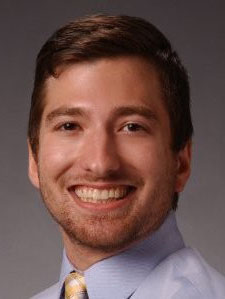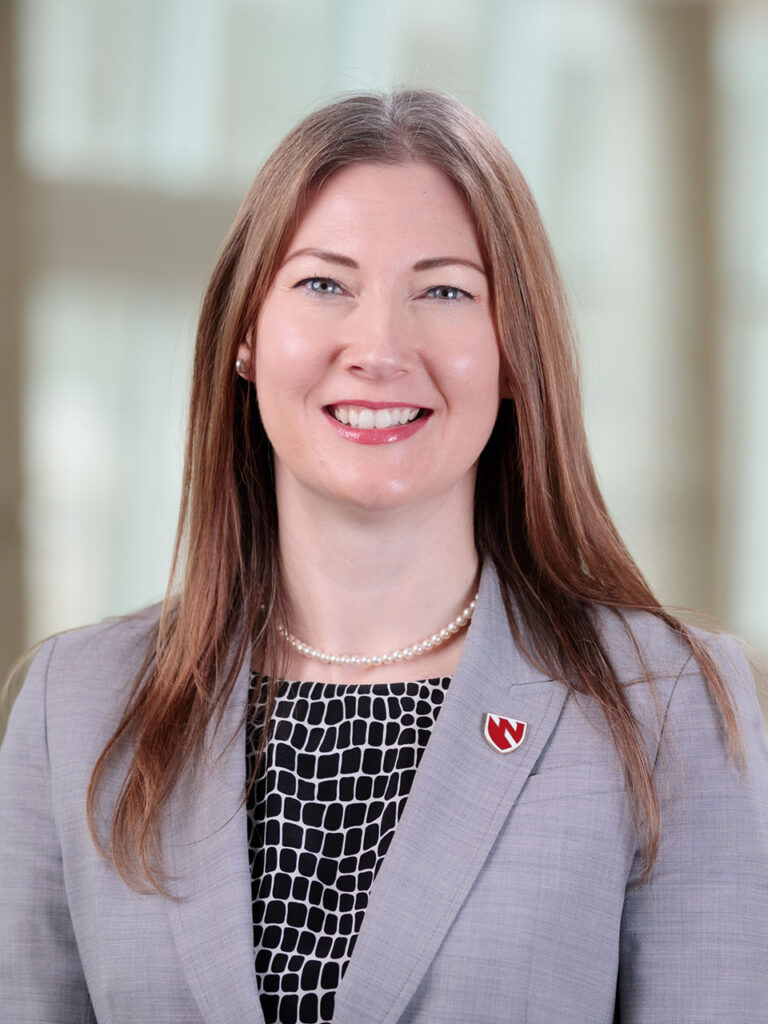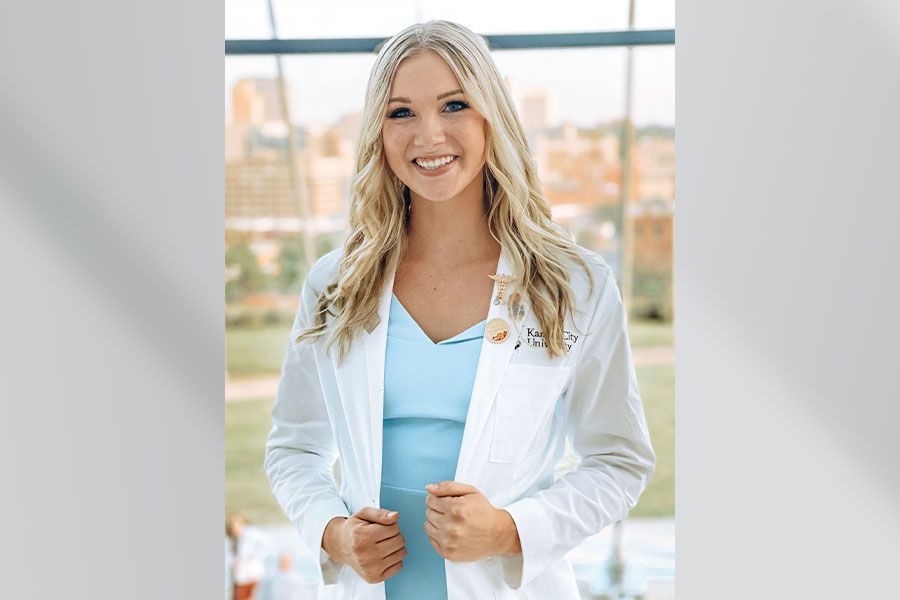When Briar Deen travels from Fort Worth to Omaha this week to receive his doctorate in public health, it will be the culmination of a long and fulfilling journey.
Although Hayley Lange will not be in Omaha to receive her master’s degree in public heath from UNMC – she will be receiving her Doctor of Osteopathic Medicine degree from Kansas City University in Missouri this weekend – the moment is equally momentous to her.
Deen and Lange are part of the initial cohorts of students graduating from two new UNMC College of Public Health programs. Deen and another student will receive the college’s first Doctor of Public Health degrees, while Lange and three others are the first MPH graduates in the college’s DO-MPH program in partnership with Kansas City University in Missouri.

Deen said graduating with his doctorate is a crucial role in his public health journey.
“UNMC has helped me grow as a public health leader, and I now feel more equipped to tackle public health issues in my community,” he said. “I am extremely grateful for the opportunities UNMC has provided and hope I will be able to give back to my community through the skills I have gained throughout this program.”
Lange said the public health master’s degree allows her to tackle health problems at a macro level.
“Often, when patients come to our clinics, we are seeing the downstream effects of all the life events, situations or burdens that they have,” she said. “I hated that I was just seeing the end picture. There’s so much more that we could accomplish outside of the 30 minutes in clinic to maybe prevent this disease from happening altogether. That was really the first thing that led me to desiring more knowledge on how to prevent the downstream effects of social determinants of health.”

Nicole Kolm-Valdivia, PhD, assistant dean for academic affairs in the UNMC College of Public Health, said it is exciting to see the first graduates from the college’s newest degree programs – the DrPH program began in 2021 and the DO-MPH collaboration began in 2022.
“All of our DrPH students are working full time, and all of our DO-MPH students are in medical school full time,” Dr. Kolm-Valdivia said. “We are incredibly proud of the way they prioritize their education to ensure that they’re appropriately prepared to meet the challenges they will face in public health. It’s inspiring to see their willingness to do that and make sacrifices.”
Both programs are online and shaped so students can fit studies and lectures around their work and school schedules. Dr. Kolm-Valdivia said interest in the program – currently there are 45 DrPH and 38 DO-MPH students enrolled at UNMC – reflects the rising awareness of the importance of public health, especially in the post-COVID era.
“COVID enlightened folks about the impact of public health inequities and how they can affect our ability to respond to pandemics and our ability to serve our communities,” she said. “With health care providers especially, we found that a lot of providers within their communities were asked to be experts on pandemic response. And if they weren’t trained in public health, they didn’t necessarily know how to do that. It highlighted that we need to ensure that people are getting public health training.”
The programs are targeted at different audiences.
“Our DrPH students already are often leaders in public health,” she said. “They were finding they needed to be a voice that was trusted within their community. They needed to know how to communicate with policymakers and with the public and how to advocate for public health. The Doctor of Public Health really allows us to provide an educational opportunity for students who are already leaders in public health but want to get advanced training and education.”
The online classes, she said, let DrPH students learn from their own community, where many already are important health leadership voices.
The DO-MPH degree provides DO students an opportunity to understand foundational public health and social determinants of health, Dr. Kolm-Valdivia said.
“A Doctor of Osteopathic Medical degree program lends itself well to being public-health focused,” she said. “Osteopathic medical students learn more of a holistic approach to health, which fits well with public health.”
The DO-MPH students at UNMC choose a concentration and receive specialized training in areas such as maternal-child health, emergency preparedness, epidemiology and others.
Dr. Kolm-Valdivia said the college has established a partnership with Marian University’s DO program and is exploring partnerships with other DO-granting institutions, as well.
“Within the DrPH program, we have students who work for WHO and UNICEF and the CDC – some really heavy hitters in the field of public health.”
Deen, who works for Texas Health Resources, said his passion for public health has evolved over several years.
“I initially was drawn to public health as it aligned with my interest in preventing the spread of infectious diseases. However, since beginning my studies in public health,” said Deen, who currently holds an MPH, “I have gained a stronger sense of duty toward health equity.”
Deen now works in the health equity space by analyzing community health data that helps support individuals in improving their health and quality of life.
“Hearing the impact my organization has on individuals and knowing that I helped support these individuals in their journey has been extremely valuable and keeps me drawn to public health,” he said.
Lange said she has become an advocate for the MPH degree.
“I would argue all health care providers should have background in public health at this point,” Lange said. “It could make large impacts on our health care system and, more importantly, our patients if we had a closer tie between physicians and public health opportunities.”
